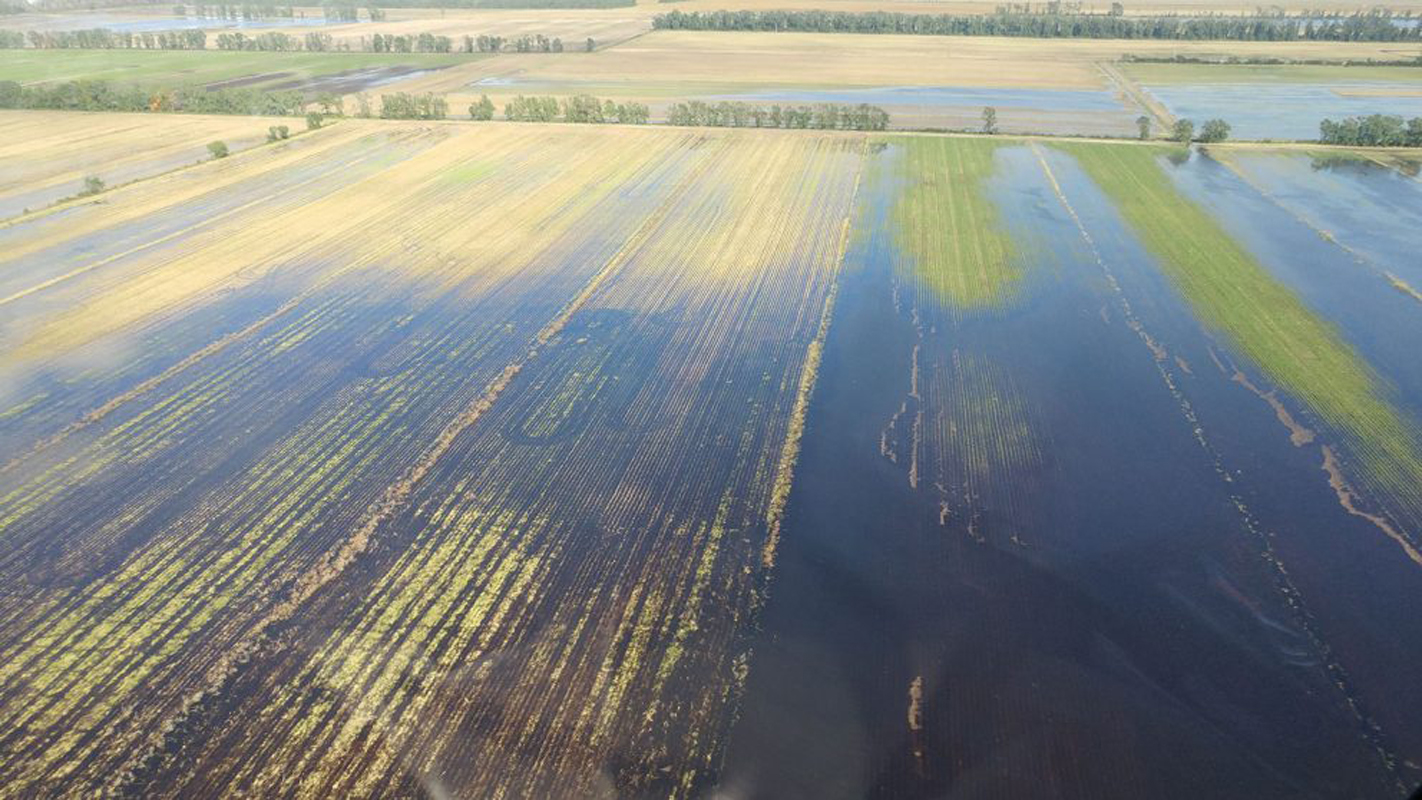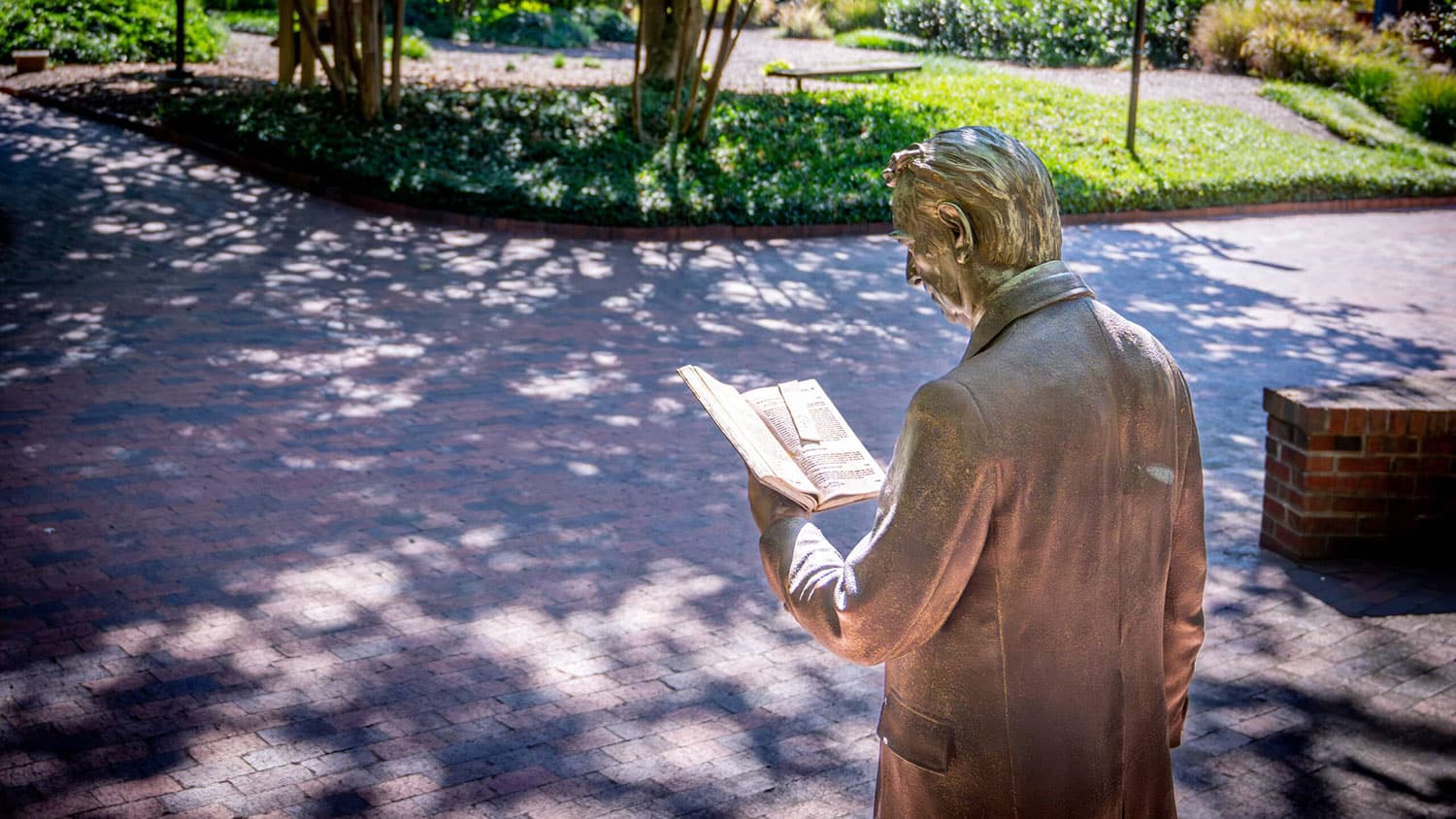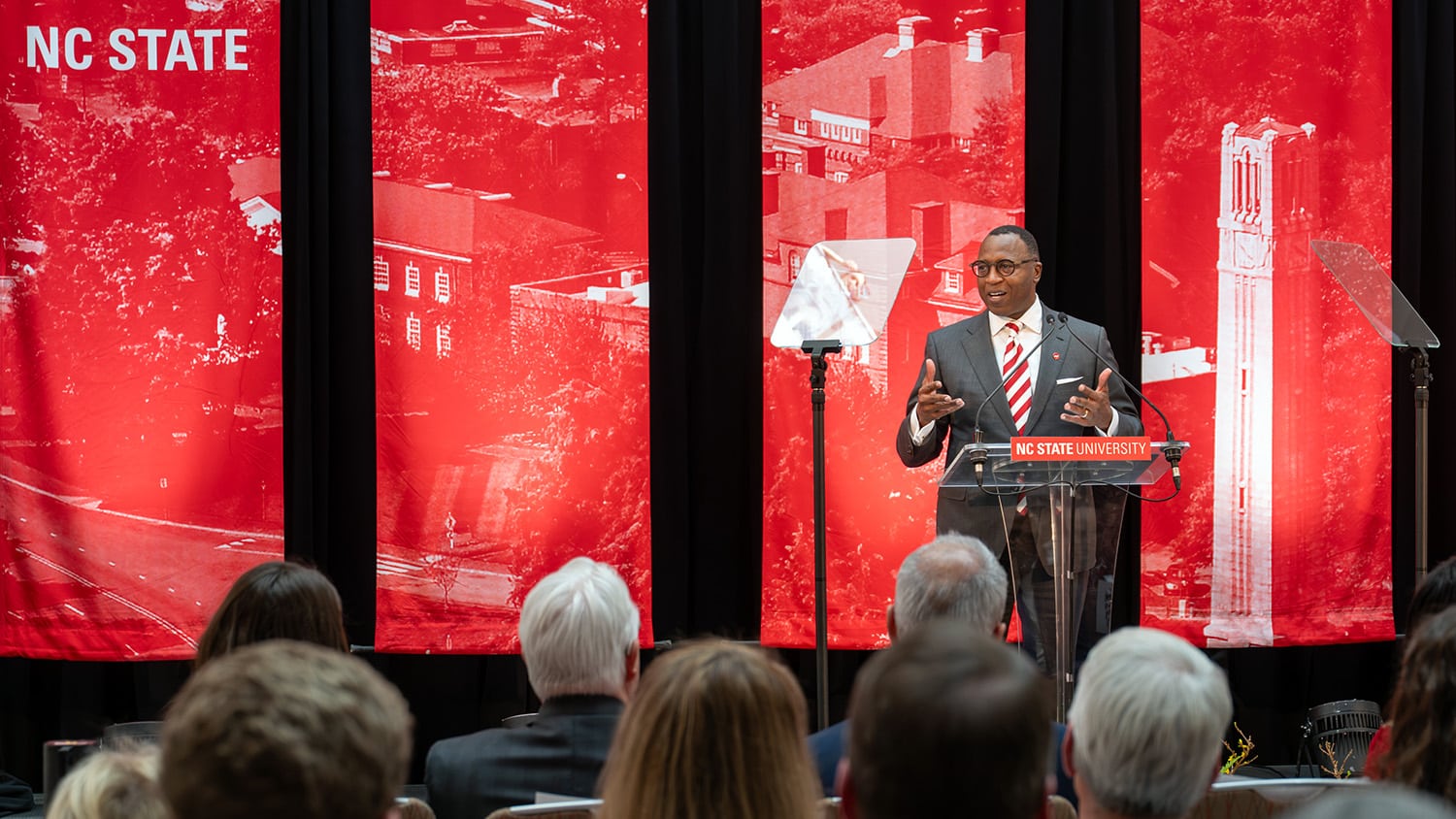For Immediate Release
As Hurricane Irma and Hurricane Jose churn in the Atlantic, media looking for information on a variety of hurricane and flood topics can contact the following North Carolina State University experts:
Hurricane Formation, Prediction, Impact
Gary Lackmann, professor of marine, earth and atmospheric sciences, can discuss research on hurricane prediction and impacts, including their formation and evolution, and the influence of climatological conditions on hurricane frequency, size, and intensity. He can be reached at 919/515-1439 or gary@ncsu.edu.
Storm Surge Modeling
Casey Dietrich, assistant professor of civil, construction and environmental engineering, is an expert on how computational models can be used to predict storm surge and related impacts during hurricanes. He can be reached at 919/515-5277 or jcdietri@ncsu.edu.
Coastal Damage
North Carolina Sea Grant’s Spencer Rogers is an expert in hurricane-resistant coastal building techniques and erosion control. Rogers is stationed in Wilmington, N.C. He can be reached at 910/962-2940.
Traffic System and Highway Infrastructure Impacts
George List, professor of civil, construction and environmental engineering, is an expert on transportation and logistics infrastructure who can discuss the potential effects of hurricanes on traffic systems and highway infrastructure. He can be reached at 919/515-8038 or gflist@ncsu.edu.
Flood Control
Sankar Arumugam, professor of civil, construction and environmental engineering, can discuss what authorities can do in regard to flood control if a hurricane comes inland. He can be reached at 919/515-7700 or sankar_arumugam@ncsu.edu.
Flood Recovery
Andrew Fox, associate professor of landscape architecture, can talk about ongoing efforts to help vulnerable communities in eastern North Carolina recover from and plan for recurrent storm flooding. He can be reached at aafox@ncsu.edu or 919/513-8064.
Impacts on Septic Systems, Wastewater Treatment Utilities and Solid Waste
Morton Barlaz, Distinguished University Professor of Civil, Construction and Environmental Engineering, can discuss the amount of solid waste generated by hurricanes and related building damage. He can be reached at 919/515-7212 or barlaz@ncsu.edu.
Francis de los Reyes, professor of civil, construction and environmental engineering, is an expert on sanitation systems who can discuss the impact of hurricanes and floodwaters on wastewater treatment utilities and septic systems. He can be reached at 919/515-7416 or fldelosr@ncsu.edu.
Care for Pets and Animals During and After Disasters
Kelli Ferris, assistant professor of clinical sciences, directs the College of Veterinary Medicine’s Community-Campus Partnership, which provides a range of veterinary services to communities across the state. Utilizing a mobile veterinary hospital, she cared for hundreds of animals in the aftermaths of Hurricane Floyd in 1999, Hurricane Katrina in 2005 and Hurricane Irene in 2011. She can be reached at 919/606-2752 or kelli_ferris@ncsu.edu.
David Eggleston, director of the Center for Marine Sciences and Technology, can speak about the impact that hurricanes can have on crab and fisheries populations along the eastern seaboard. He can be reached at 252/222-6301, 919/515-7840, or at eggleston@ncsu.edu.
Barrett Slenning, College of Veterinary Medicine director of agrosecurity and biopreparedness, can speak to large-animal care, emergency needs and biosecurity issues. He can be reached at 919/513-6324 or barrett_slenning@ncsu.edu.
Agriculture
Mike Yoder, associate director of NC State Extension, can address a range of issues related to both crops and livestock. He can be reached at 919/801-8243 or mjyoder@ncsu.edu.
Water Quality
Storm-related flooding can damage drinking water wells and lead to aquifer and well contamination. Direct human contact with floodwaters presents additional risks. Michael Burchell, an associate professor and department extension leader of biological and agricultural engineering, can discuss water-quality concerns in a disaster. He can be reached at 919/513-7348 or mrburche@ncsu.edu
David Eggleston, director of the Center for Marine Sciences and Technology, can discuss a hurricane’s effects on ocean salinity and dissolved oxygen levels. He can be reached at 252/222-6301, 919/515-7840, or at eggleston@ncsu.edu.
Marcelo Ardón Sayao, faculty member in forestry and environmental resources, can speak about flooding’s effects on watersheds, wetlands and streams. He can be reached at 919/515-5574 or mlardons@ncsu.edu.
Policy and Politics in Natural Disasters
Natural disasters are inherently political events. Policies can mitigate or exacerbate the effects of disasters, and problems with relief and recovery can become political crises. Tom Birkland, a professor of public policy, is an internationally known expert in these matters and can provide context about the politics of disaster. He can be reached at 919/513-1834 or tabirkla@ncsu.edu.
Food Safety
Ben Chapman, a food-safety specialist and associate professor of family and consumer sciences, can discuss food-safety issues related to post-hurricane power outages. He can be reached at 919/515-8099 or 919/809-3205, or at benjamin_chapman@ncsu.edu.
Safety on Farms and With Generators
During times of adverse weather, generators can be used to provide electrical power, but if not operated correctly can be hazardous. Grant Ellington (919/515-6793 or grant_ellington@ncsu.edu), extension assistant professor of agricultural engineering, can offer tips on using generators. He and Gary Roberson (919/515-6715 or gtrobers@ncsu.edu), extension specialist and associate professor of agricultural engineering, can also provide information on general farm safety.
Effects on Children and Parents
Kimberly Allen, extension parenting and youth development specialist, can discuss the effects of disasters – like hurricanes – on children and parents, and how to help parents assist their children in preparing for and recovering from a disaster. She can be reached at 919/515-9139 or kimberly_allen@ncsu.edu.
Hazards Adaptation
North Carolina Sea Grant’s Jessica Whitehead has expertise regarding communication of weather information, as well as the impact of storms and flooding and resilient recovery. She can be reached at 919/515-1686 or j_whitehead@ncsu.edu.
Home Cleanup and Restoration
Sarah Kirby can talk about a variety of topics on storm damage to homes, including cleaning and minor structural repairs. She can be reached at 919/515-9154 or sarah_kirby@ncsu.edu.
David Tilotta, forest biomaterials professor and extension specialist, can discuss how storms affect housing and home construction. He can be contacted at 919/515-5579 or dave_tilotta@ncsu.edu.
Effect on Trees and Timber Resources
Robert Bardon, associate dean of extension and engagement in the College of Natural Resources, can discuss economic damage to the timber industry and any salvage operations. He can be reached at 919/515-5575 or rebardon@ncsu.edu.
Insects and Other Pests
Storms can displace insects and other wildlife, raising concerns about how to manage them in a storm’s aftermath. Entomologist Michael Waldvogel can discuss these topics; he can be reached at 919/515-8881 or mike_waldvogel@ncsu.edu
Impact on Local Wildlife
Chris DePerno, a professor of fisheries, wildlife and conservation biology, can discuss hurricane impacts on wild animals. He can be reached at chris_deperno@ncsu.edu or 919/513-7559.
Coastal Tourism Impacts
Erin Seekamp, associate professor and tourism extension specialist, can discuss how the hurricane could affect tourism and cultural resources on the coast. She can be reached at erin_seekamp@ncsu.edu or 919/513-7407.
On the Web
A list of N.C. Cooperative Extension personnel with expertise in disaster-related issues can be accessed here.
Extension’s Disaster Information site can be accessed here.
The Department of Entomology and Plant Pathology has compiled a web page on issues you might encounter in the wake of hurricane.
Information and materials on tree-related damage after natural disasters can be accessed on Extension Forestry’s website.
A State Climate Office website with real-time access to weather information collected from hundreds of weather stations around the state and bordering regions can be accessed.
– 30 –
- Categories:



